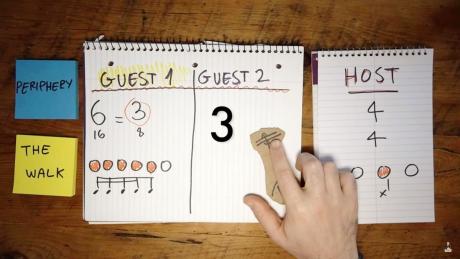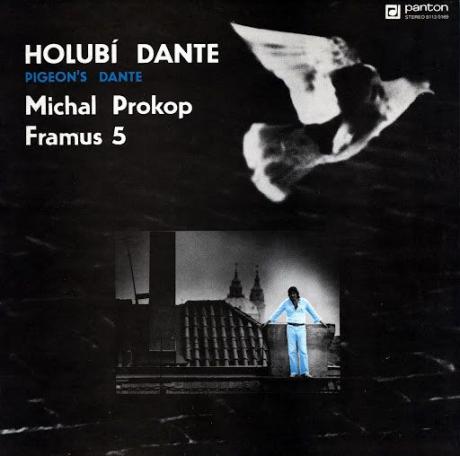Rockové klávesy XXIII - workshop

Be a Rock Keyboard Bodisattva
Bodhisattva: an enlightened being
This month I wanted to share a few quotes and philosophies that have really helped me in my journey in the Music business. Life in music is really tough sometimes; I’m not going to lie to you. With plummeting record sales and so many talented people, it can be easy to get discouraged. I think for many of us, including me, we use our talent to try to win favor, become popular, make money, whatever our dreams are. We often have such big expectations of everything we forget that things tend to be much more mediocre than we wish which brings me to my favorite quote of all time. It comes from a kung fu master:
Plough diligently and do not ask for harvest
The quote means that we should work very hard to achieve our life’s purpose without the need for reward. At first this sounds kind of silly, but the truth is when we find our life’s purpose and get it really tuned in, our life becomes the work of art and all of the things like money and recognition will quite naturally follow. This is not to say that there is some magic process. To keep in one direction without stopping over a long period of time can’t help but make results in the direction of our dreams. Back to our Kung Fu master... the actual meaning of the words Kung Fu are roughly translated “hard work over a long period of time” which is exactly what your musical journey will be.
Here's another Eastern thinker named Lao Tzu from his masterpiece The Tao Te Ching. It's not known for sure if there was one individual named Lao Tzu which literally means "Old Man" or if the book was a collection of many old sayings by different Chinese wise men. The legend is that Lao Tzu at the end of his days after being sick of the ways of men wandered into obscurity giving his simple teachings to a guard as he left the city never to be seen again. The Tao, meaning “The Way” is a system of living naturally and in peace during times of trouble. The whole book is very short and can be read in one sitting. The second section of the Tao is mostly about leading an army and for our purposes is probably a little less important than the first section. Check out Chapter 8 which really encapsulates the whole idea of Taoism.
Man at his best, like water, Serves as he goes along: Like water he seeks his own level, The common level of life, Loves living close to the earth, Living clear down in his heart, Loves kinship with his neighbors, The pick of words that tell the truth, The even tenor of a well-run state, The fair profit of able dealing, The right timing of useful deeds, And for blocking no one’s way No one blames him.
Water is the softest substance but over time can erode a mountain. This is the approach the Tao teaches. By being calm in a stressful situation on during a conflict with a band member, stay calm and be like water
Also one of my favorite chapters is chapter 13:
Favor and disfavor have been called equal worries, Success and failure have been called equal ailments. How can favor and disfavor be called equal worries? Because winning favor burdens a man With the fear of losing it. How can success and failure be called equal ailments? Because a man thinks of the personal body as self. When he no longer thinks of the personal body as self Neither failure nor success can ail him. One who knows his lot to be the lot of all other men Is a safe man to guide them, One who recognizes all men as members of his own body Is a sound man to guard them.
The Eastern philosophies, in general, suggest a gentle approach to life by letting things and people be themselves without the need to control them. This is a great mindset to have when trying to navigate turbulent world of the music business. You will surely on you journey get a really gig at some point. You will practice really hard, have just the right band, the right tunes, and perfect gear, but for some reason, the gig will be a disaster. There will actually be so many of these experiences by the time you actually get successful, you will start to wonder why you even got involved in the first place. You will also learn the most valuable lesson from all these difficulties. accomplishments, awards, press... that none of these things will bring you the feeling of satisfaction you are looking for. This feeling has to happen first inside of you for the other things to follow.
The physical act of playing music should also be approached with the stillness of Lao Tzu. My biggest lesson is this was when I was learning how to play the Hammond B3 in Harlem. I was just starting to play the pedals and would have to play really long, uptempo tunes for like 40 minutes and I was getting really tired before the end of the 1st set. I had to learn how to conserve my energy to be able to make it till the end of the gig. I started to stay really still when I played and really tried to pay attention to my body and things got a lot easier immediately. My solos also started to flow naturally when I focused on keeping my body relaxed. Many times when we go to play music our bodies are really tense and emotional because we want to play great so badly. It’s so important to us to pay attention to this desire and try to quiet this desire and focus on the task at hand, playing music. Lao Tzu is saying that if we place a little less importance on the object of our desire, it will be much easier to attain. Here’s a simple meditation for you to try next time you are playing: start following your breathing and try to focus on the point where the in breath changes to the out breath. You will immediately notice that your attention is taken off the keyboard. Experiment with this exercise and gaining this “detachment” from the keyboard and see how it affects your playing
Keep these Eastern thoughts in mind while I expose you to another writer. This one is not Chinese mystic, but a drunk American postal worker, Charles Bukowski.
Roll the Dice
if you’re going to try, go all the
way.
otherwise, don’t even start.
if you’re going to try, go all the
way.
this could mean losing girlfriends,
wives, relatives, jobs and
maybe your mind.
go all the way.
it could mean not eating for three or four days.
it could mean freezing on a
park bench.
it could mean jail,
it could mean derision,
mockery,
isolation.
isolation is the gift,
all the others are a test of your
endurance, of
how much you really want to
do it.
and you’ll do it
despite rejection and the worst odds
and it will be better than
anything else
you can imagine.
if you’re going to try,
go all the way.
there is no other feeling like
that.
you will be alone with the gods
and the nights will .ame with
.re.
do it, do it, do it.
do it.
all the way
all the way.
you will ride life straight to
perfect laughter, its
the only good .ght
there is.
- Charles Bukowski
This is obviously a very different viewpoint from the Eastern writers, but here’s the real secret: you will need both of these sensibilities to reach your goals. Sometimes when a club owner fails to pay you exactly the right amount at the end of the night, a softer approach may be better than getting really angry. On the flip side, If your guitarist is always 5 minutes late to rehearsal, you may have to talk to him strongly about this seemingly small point. By having many life experiences, you will learn how to act in just about every situation if you are paying attention. When you come to a situation you’ve experienced before, try not to make the same mistake. Stay
calm and think about what Lao Tzu would do.
Fráze a hudební termíny:
Plummet: Řítit se dolů závratnou rychlostí. Toto sloveso se často používá, chce-li mluvčí poněkud dramatizovat pokles nějakého údaje či veličiny, např. v tomto článku je použito v kontextu propadu prodejů hudebních nahrávek.
Mediocre: „Průměrný“ v negativním, pejorativním smyslu. Takže vlastně podprůměrný...
Plough: Orat půdu za pomoci pluhu. Pro méně chápavé - zde použito jako metafora pro práci na sobě, na svých schopnostech (v tomto případě muzikantských).
Diligent: Pracovitý, pilný, snaživý.
Harvest: Sklízet úrodu, zde opět použito jako metafora, tentokrát pro úspěch.
Wander into obscuity: Odejít a nikdy se nevrátit, být zapomenut. Častěji narazíte na frázi „fade into obscurity“ - postupně upadnout v zapomnění.
Encapsulate: Doslova „zapouzdřit“, ale často (jakož i v tomto článku) se výraz používá také ve významu „vystihovat podstatu“ nějaké myšlenky.
Kinship: Přestože „kinship“ znamená doslova „příbuzenský vztah“, zde je slovo použito ve významu „pocit sounáležitosti či bratrství“.
Neighbor (v britské angličtině „neighbour“): Toto slovo pravděpodobně znáte, ale možná pouze ve významu „soused“. Ne jen v biblických textech ale znamená také „bližní“ a v tomto významu je výraz použit i zde.
Deed: Poněkud staromódní výraz pro skutek nebo čin.
Mindset: Doslova „nastavení mysli“ či „rozpoložení“ neboli způsob, jakým na svět či danou situaci nahlížíme.
Detachment: Stav „oddělenosti“, odloučení či odstupu. Zde použito ve významu „nemuset se zcela soustředit na klaviaturu.“
Derision, mockery: Oba výrazy znamenají výsměch, pohrdavé zesměšňování.


